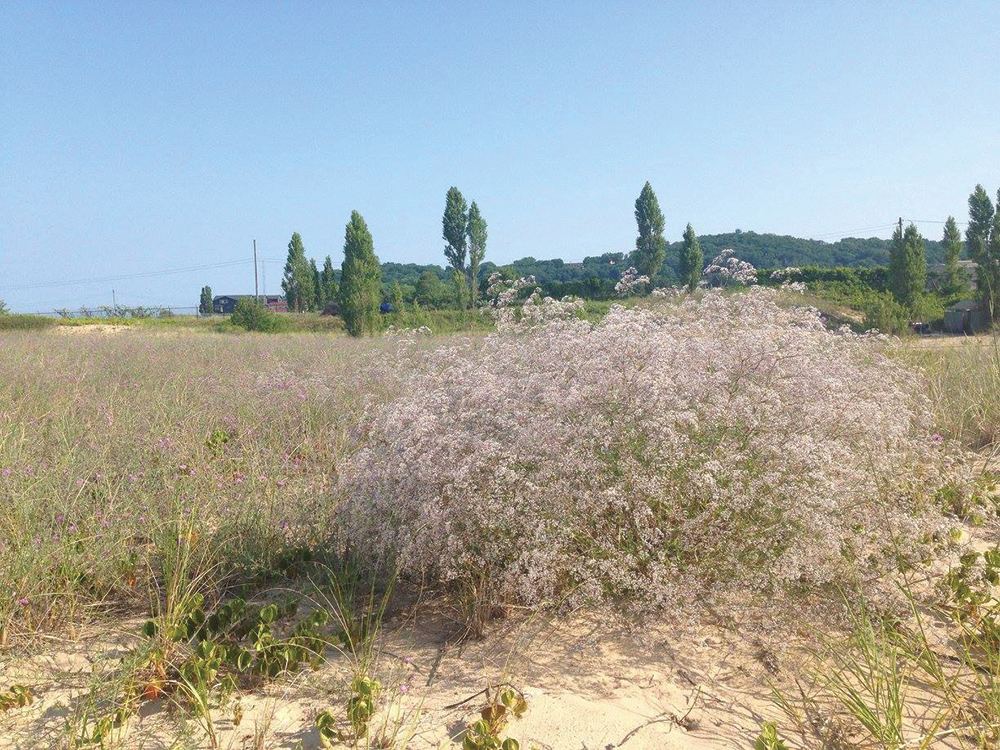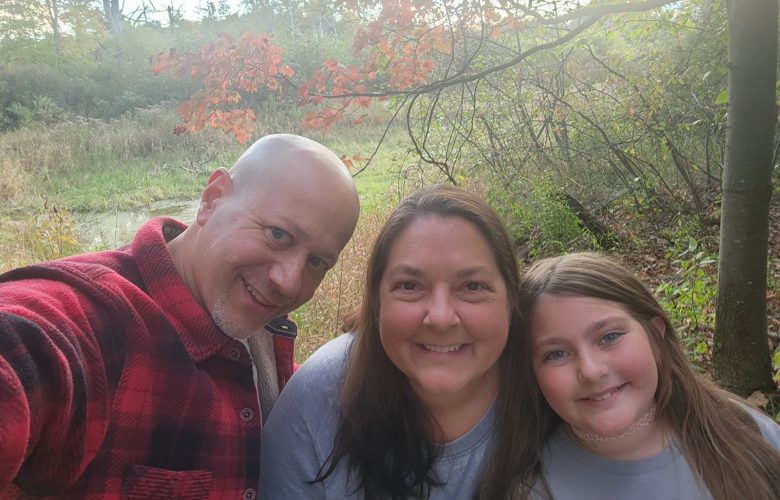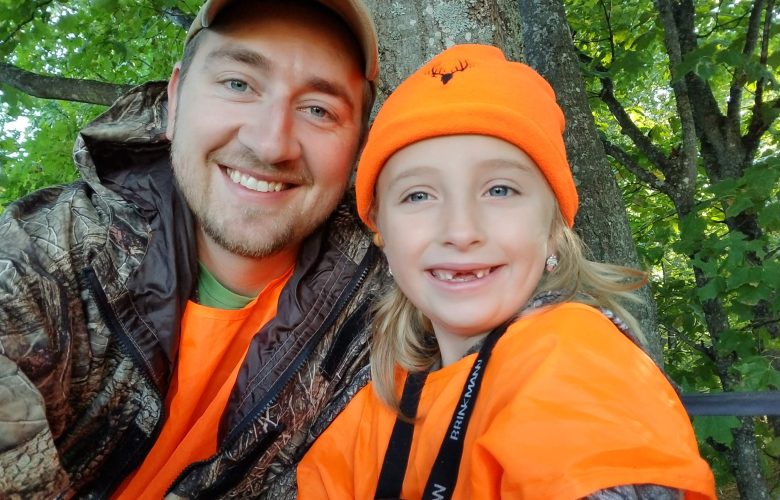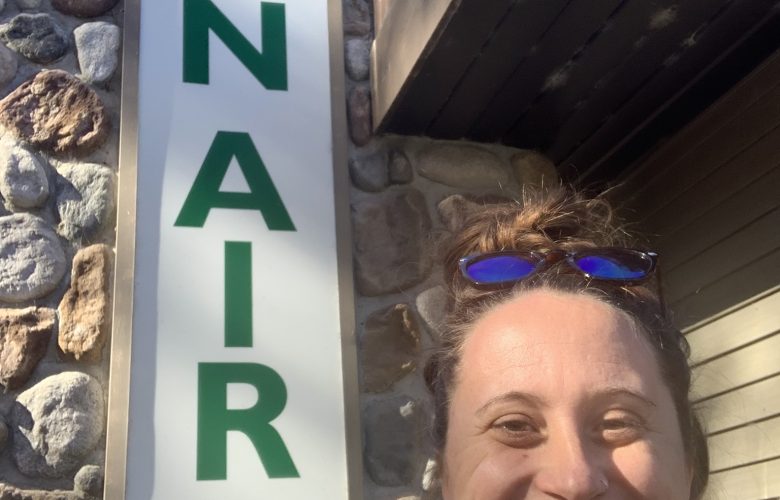Removing invasive species from Elberta Beach
By Emily Cook
Current Contributor
Baby’s breath—a plant commonly included in flower shop bouquets, boutonnieres, and corsages—is more than just a companion for roses and carnations. It is an invasive plant that thrives on the dunes and beaches that dot our Northern Michigan landscape.
A single baby’s breath plant can produce 14,000 seeds each year. Additionally, baby’s breath is often included in wildflower seed mixes, inadvertently introducing the plant to yards and surrounding natural areas. The negative impacts of baby’s breath can be seen in our community, as it spreads quickly and overtakes dunescapes, threatening habitat for native species, such as the federally threatened pitcher’s thistle and endangered piping plover bird.
Fortunately, local organizations and volunteers will spend time this spring and summer treating and removing baby’s breath from Elberta Beach, where it has an established presence. Organized by the Northwest Michigan Invasive Species Network (ISN) and the Grand Traverse Regional Land Conservancy, volunteers will remove baby’s breath on the beach, one of the last unmanaged sections of shoreline between Arcadia Dunes Nature Preserve and the Sleeping Bear Dunes National Lakeshore.
“Baby’s breath can be controlled through digging and piling, to prevent seed dispersion,” says Fields Ratliff, ISN’s habitat management specialist. “Our volunteers are out on the beach for about three hours at a time, which isn’t a bad way to spend a morning during the summer in Northern Michigan.”
Removing baby’s breath during the early summer is ideal, because the plant dries out by late August and can break off at the base, turning it into a tumbleweed that can travel down the shoreline in the wind, dispersing its seed along the way.
The Grand Traverse Regional Land Conservancy has been treating baby’s breath at the nearby Arcadia Dunes Nature Preserve since 2004 and recently expanded removal efforts to Elberta Beach in 2016, according to Jon Throop, GTRLC land steward.
“These dune ecosystems host a number of rare and threatened species that rely on the dynamic nature of dunes for their survival,” Throop says. “GTRLC quickly realized that protecting land against development isn’t enough to maintain these habitats into the future. We have to safeguard these areas from the ongoing threat of invasive species to truly preserve the health and beauty of our iconic beaches and dunes.”
Paula Dreeszen is a volunteer with the Grand Traverse Regional Land Conservancy and frequently helped with last year’s baby’s breath-removal events.
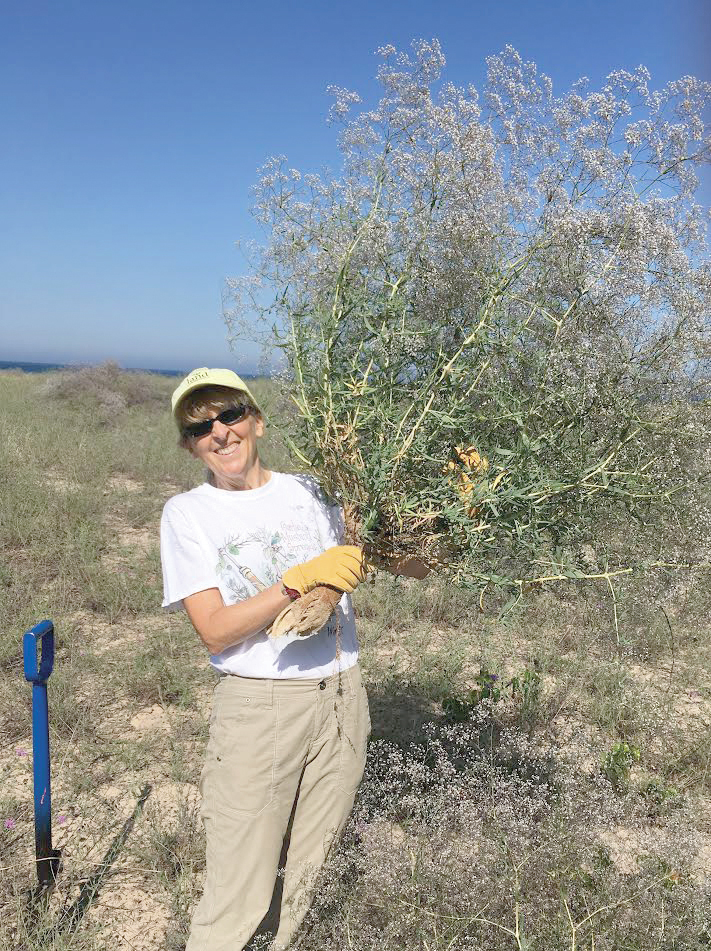
“I fight invasives, because I love native wildflowers,” Dreeszen says. “Removing baby’s breath at Elberta Beach is especially important to prevent its spread south into beach and dune areas, rich with natives like hairy puccoon, beach pea, and pitcher’s thistle.”
Baby’s breath is one of ISN’s “Top 20 Least-Wanted Invasive Species,” a list of invasive plants that are prevalent in the four-county region that ISN serves: Benzie, Grand Traverse, Leelanau, and Manistee counties. Of those Top 20, the priority plants are known as the Focus Four, which includes garlic mustard, Japanese knotweed, oriental bittersweet, and Phragmites. While baby’s breath is not listed as a Focus Four priority species, Elberta Beach is a valuable landscape that serves as critical habitat, making this an important project for ISN.
Volunteer events, called work bees, will begin on Thursday, May 25, and continue sporadically until early August—all are welcome to join in this effort from 9 a.m. until noon each day!
• Thursday, May 25
• Thursday, June 1
• Saturday, June 17
• Thursday, July 6
• Saturday, July 15
• Thursday, August 3
As a thank you, anyone who participates in a work bee will receive some ISN swag and discounts to local businesses, including Stormcloud Brewing Company and the Crescent Bakery in Frankfort. Additionally, names will be entered into a drawing that takes place at the end of each event. Prizes include certificates to The Cabbage Shed and FrankZ, native wildflower seed packets, t-shirts, and more.
Emily Cook is ISN’s outreach specialist. If you want to participate in a work bee session, there is no need to register beforehand, but any questions can be directed to 231-941-0960 extension 20 or ecook@gtcd.org. As these work bees will be held outside, volunteers are asked to bring work gloves, water, and sunscreen. Meet at the beach parking lot. For additional volunteer opportunities or more information on invasive species, visithabitatmatters.org.

